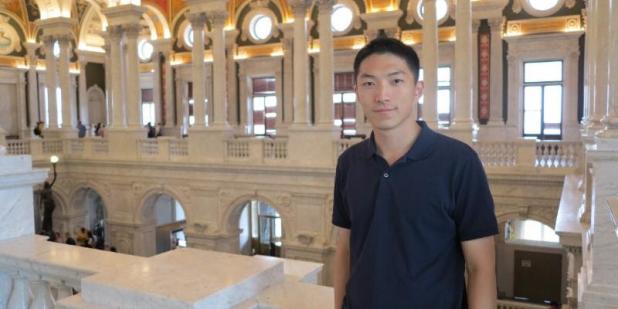Join us for a free one-day workshop for educators at the Japanese American National Museum, hosted by the USC U.S.-China Institute and the National Consortium for Teaching about Asia. This workshop will include a guided tour of the beloved exhibition Common Ground: The Heart of Community, slated to close permanently in January 2025. Following the tour, learn strategies for engaging students in the primary source artifacts, images, and documents found in JANM’s vast collection and discover classroom-ready resources to support teaching and learning about the Japanese American experience.
From Offensive Dominance to Deterrence: China's Learning from the U.S. on Cyberwarfare
Discussion on cyber warfare and the possibilities between China and the U.S.
Where

It has been widely argued that the PLA has shown a strong interest in launching large-scale cyber attacks against the U.S. during war or peacetime. However, such views ignore the fact that the PLA must restrain itself due to the uncertainties associated with cyber attacks, such as collateral damage, blowback, and escalation. In addition, most of the sources quoted by Western observers are outdated or even unreliable. In fact, Chinese experts follow U.S. perceptions and cyberwarfare practices very closely, which has contributed to Beijing's evolving strategic thinking over the past few decades. From the 1990s to the early 2000s, the "ideology of offense" was the PLA's primary approach to the "informationization" leap forward. After 2008, both military and civilian scholars started to increasingly question the effectiveness of cyber attacks after studying their peers' debate on cyber deterrence in the U.S. Since 2015, there has been a call for China to develop its own cyber deterrence strategy as a reaction to the U.S.'s further development of cyber deterrence.
Tianjiao Jiang is a research fellow at the Center for Global Cyberspace Governance Studies, Fudan University, cooperating with the Tencent Holdings Ltd. He started his Ph.D. program on arms control and regional security in 2013 at the Center for American Studies, Fudan University. After spending one year at Georgetown and George Washington University in 2014, he is now a visiting scholar at the Sigur Center for Asian Studies. His research focuses on cybersecurity, nonproliferation and strategic stability between China and the U.S. He is also a member of the International Student/Young Pugwash (ISYP), the CTBT Youth Group, and the Wilson Center's Asia-Pacific Nuclear History Institute. He has published both English and Chinese papers in the Copenhagen Journal of Asian Studies, Chinese Political Science Review, Journal of Contemporary Asia-Pacific Studies, and American Studies Quarterly.
RSVP here.
Featured Articles
Please join us for the Grad Mixer! Hosted by USC Annenberg Office of International Affairs, Enjoy food, drink and conversation with fellow students across USC Annenberg. Graduate students from any field are welcome to join, so it is a great opportunity to meet fellow students with IR/foreign policy-related research topics and interests.
RSVP link: https://forms.gle/1zer188RE9dCS6Ho6
Events
Hosted by USC Annenberg Office of International Affairs, enjoy food, drink and conversation with fellow international students.
Join us for an in-person conversation on Thursday, November 7th at 4pm with author David M. Lampton as he discusses his new book, Living U.S.-China Relations: From Cold War to Cold War. The book examines the history of U.S.-China relations across eight U.S. presidential administrations.




